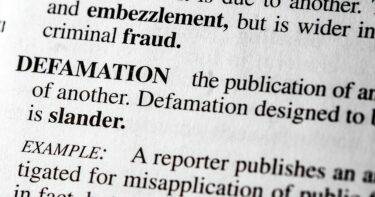
28
Jun 2023
Mergers and Acquisitions: Due Diligence
In this article, Sarah Hemmings and Kyrran Dearnley-Porter in our Corporate and Commercial department discuss the importance of due diligence for buyers and sellers.
Due diligence – what is it?
Due diligence is a crucial part of an asset or share purchase that involves conducting a thorough investigation into a business, before entering into an agreement. This process aims to identify any potential risks, liabilities, or issues that may impact the success of the transaction, the assets and business being purchased or the incoming shareholders post-completion. Due diligence is important in corporate law because it provides accurate and complete information to a buyer who can use it to make informed decisions and mitigate the associated risks. Due diligence is usually divided into Financial Due Diligence (covering all aspects of tax, accounting, and other financial matters) and Legal Due Diligence (relating to the commercial aspects of the business). Sometimes Property Due Diligence is raised as a separate limb, or it can fall under the umbrella of Legal Due Diligence depending on the state of the property position.
Why do it?
The purpose of due diligence is to protect both parties involved in a transaction or deal. For the buyer, due diligence outlines potential risks or liabilities. By conducting due diligence, buyers can make informed decisions regarding the legal, financial, and operational aspects of a business. Should anything unexpected arise, it gives them the opportunity to decide whether to renegotiate the terms of the transaction or walk away altogether. It gives insight into the business being acquired which without a thorough formal process may well not be flushed out. It avoids surprises for the buyer arising post-completion.
For the seller, due diligence helps demonstrate that the business has been conducted in line with all applicable laws and regulations, that it is worth the value that is being paid for it and that there are no contingent liabilities post-completion.
Who does it?
Sometimes buyers will think that they have asked the right questions about the business to the seller. Whilst inter-party direct discussion is always helpful and often invaluable, in order to ensure that a full suite of comprehensive questions is asked, the process should be instigated by the buyer’s legal team and the buyer’s tax/accounting team. Both professional representatives should review the responses which are compiled by the seller (in conjunction with the seller’s legal team).
All questions, responses and supporting documents should be collated in a data room – an electronic room where information is recorded and documents can be uploaded and stored and can be referenced clearly as being information that has been provided by the seller to the buyer. It is critical that even where information is passed directly between parties, that information is included within and referenced in the data room.
Due diligence done correctly can help to prevent any future legal disputes or challenges to the transaction. As part of the sale process, the due diligence questions will be transposed into the sale agreement in the form of warranties (promises given by a seller to the buyer about the business) and if any statement is inaccurate or untrue, the seller has the opportunity to formally disclose against it (thereby formally putting the buyer on notice of a matter which is inconsistent with the warranty). A comprehensive due diligence exercise will have already alerted the buyer to any inconsistencies with the warranties, thus allowing him to discuss with his representatives how best to deal with them.
What if due diligence highlights a problem?
Some businesses are relatively “clean” in that there is not a great deal to cause concern to a buyer.
Sometimes due diligence will flush out information that is of interest to the buyer but does not materially impact the deal. Other times the process highlights a specific problem which is a real risk to the buyer. His legal team will then discuss with him the possibilities. These may include negotiating the purchase price, retaining an amount of the purchase price until such a time that it is ascertainable as to whether a particular problem is going to cause loss post-completion, or asking for a specific indemnity from the seller to cover any loss arising from that specific issue.
Due diligence also helps to identify any potential areas for integration between the two companies. By understanding the strengths and weaknesses of each organisation, the parties can work together to develop a successful integration plan that maximises the value of the transaction; this is particularly useful where there is earn-out consideration at stake for a seller. Due diligence can also help to identify any potential cultural differences or other issues that may impact the success of the integration.
If you have any questions regarding due diligence or would like to arrange a telephone call to speak to one of our Corporate and Commercial team, please email us at NewEnquiries-CoCo@chadlaw.co.uk.
- Like this ? Share with friends





